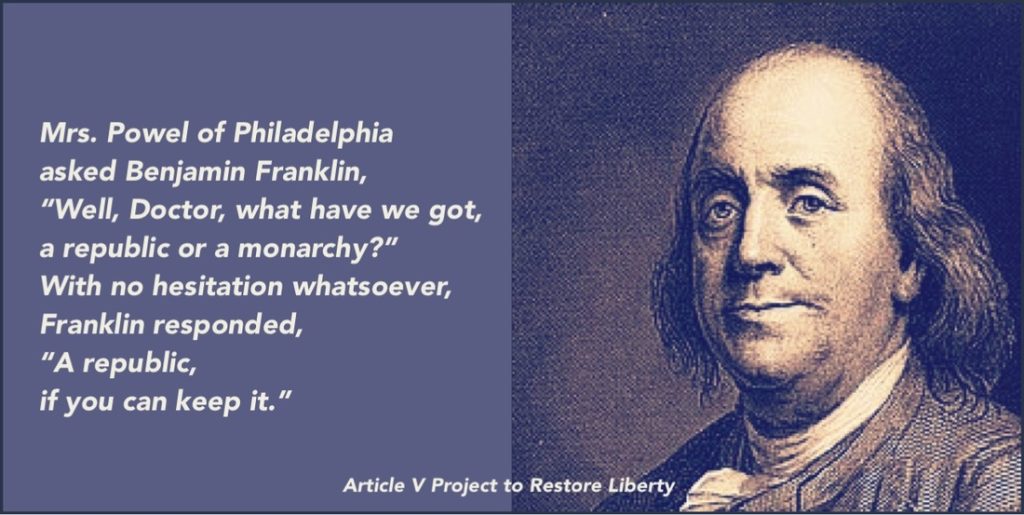
I can’t help but getting the impression that the Democrats scream “Save Our Democracy!” so often, is because they want to eventually kill the Electoral College…
Lots of talk present day from the self-appointed Virtuous Ones (the same people with some serious authoritarian streaks), how the VOs drone on endlessly that they are the sole protectors of “American Democracy”.
Of course, the bad guy in this farce is none other than the infamous Orange Man Bad, who happens to be the same OMB who won the electoral college (but lost the popular vote) in the 2016 presidential election.
As much as the VOs want to gaslight us all into believing that pure democracy is the greatest thing since tampons in the boy’s rooms and horse semen smoothies, allow me to break it down explaining why a pure democracy is a VERY bad thing, and why a Constitutional Republic is FAR superior.
Now you might say to me, “But, but, but… Ancient Greece! Senatus Populusque Romanus! The signing of the Magna Carta; The Lord of the Flies! I’ve always been taught in gub-mint skoolz that ‘democracy’ is what every nation should strive for, right?”
Long answer short – no.
In a pure democracy, let’s say there’s a proposed law that the folks who comprise (my totally made up) “Demographic C-12” will surrender themselves to the state to form the professional core of this country’s newly revamped armed forces.
Specifically, the C-12 demographic is comprised of males of all ages whose lineage is at least three-fourths German, and also those whose lineage is at least three-fourths Sub-Saharan African.
C-12 citizens will remain in this state of indentured servitude until the government sees fit to discharge them. It’s understood that 20, 30, even 40 years of service is the intended norm.
In a pure democracy, the people vote directly on this particular proposed law.
SIDE NOTE: I’m not sure how a pure democracy could possibly have a functioning economy. Between voting on filling potholes in the streets, voting what altitudes east-to-west and north-to-south airlines can fly at, and voting on the standard length, strength, and cost of bootlaces for all government workers, I’m pretty sure that We The People will spend most of our waking hours casting votes.

But back to the C-12 vote. Here it is, election day, the returns come in as follows:
- Aye – 50.001 percent
- Nay – 49.999 percent
The resolution has passed. Those who lost have NO legal recourse. After all… the people in this country want very badly to PROTECT THEIR DEMOCRACY!!
But in a republic, something as hare-brained as my made-up C-12 vote would have to travel a MUCH different path. First of all, as noted by the good folks over at Ballotpedia.com;
The United States Constitution can be amended in two ways, per Article V:
- Congress can propose an amendment to the U.S. Constitution. A two-thirds (2/3) vote is required in both the U.S. House of Representatives and the U.S. Senate. Then, three-fourths (3/4) of the state legislatures must approve the amendment.
- States can propose amendments to the U.S. Constitution. When two-thirds (2/3) of the state legislatures call for a federal constitutional convention, Congress must provide for a constitutional convention. Delegates at the convention can propose amendments to the U.S. Constitution. Then, when delegates agree to amendments, the amendments are referred to the states. At least three-fourths of the states must approve an amendment, either through the legislative process or the state convention process.
Interesting, huh? No more razor-thin victories or defeats. But what if those 2/3 and 3/4 majorities would actually pass? How is there a built-in protection of the rights of the minority?
Ahhh… this is the beauty of our Constitution’s built-in checks and balances.
The C-12 crowd can fall back on federal judges (to include the SCOTUS) to rule that their involuntary indentured servitude is a violation of the XIII Amendment.
Now please consider this — federal judges are indirectly selected by We The People.
As noted by UScourts.gov (emphasis mine);
“Supreme Court justices, court of appeals judges, and district court judges are nominated by the President and confirmed by the United States Senate, as stated in the Constitution.”
That’s what happens in a Constitutional Republic. We The People elect representatives who ensure the gears of government work for the benefit of all its citizens. At least that’s the way it’s supposed to work.
In spite the many failures of corrupt politicians who walk away from a handful of years in the US Congress as millionaires (on a salary of $174,000 a year), a republic will beat a democracy every day of the week.
